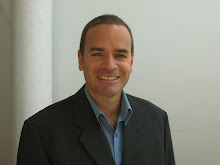Today I was reading a journal article entitled "The challenge to make extension education culturally relevant"*, written as a reflection about theological education in Latin America, with a particular focus on distance education.
Don't go back to your Facebook browsing - this is actually really interesting and gives a good insight into why what we are doing in Latin America is important.
The "classical" model of theological education is residential. You go to an institution, live there or there-abouts for 2-4 years, study full time, and come out at the end, returning home or going to a new place.
Reporting on a workshop in Bolivia, the author summaries several deficiencies / problems with this model of education in Latin America.
i. There are currently a very small number of students enrolled on most Bible institutes in Latin America.
ii. Very high cost of maintaining the infrastructure and faculty.
iii. Because of family circumstances and limited education, the option of living somewhere else for 2-4 years for training is not an option.
iv. Taking students out of their cultural "home" and transferring them into a residencial institution presents huge challenges.
In the context of these problems, distance education was presented as something of a panacea - because so many of these challenges can be addressed.
But - surveying a large denomination in Bolivia that uses distance education, the following problems were identified - showing clearly that distance education is not the "magic bullet". These include:
- failure of students to complete assignments (because someone is not "one their case"
- inadequate materials in the language of study (in this case Spanish)
- lack of resources written by local authors
- lack of sufficiently trained teachers
- lack of contact between the student and teacher
- pressure of the teacher to travel widely to visit students, thus creating pressure at home
- lack of high level theological preparation (MA, MTh level)
- lack of financial support from local churches. Programs largely funded from outside sources introduce problems of commitment.
- lack of being able to graduate in reasonable time. Because distance education is typically part time, a 2-4 year program can take 10+ years to complete, and people don't want to wait that long.
This all echoes my experience, and is a summary of many of the things we are trying to address in MOCLAM.
But here's the really interesting thing.
The workshop that the author is reporting on was held in 1968, and the journal paper written in 1976!
In 40 years we've been trying to solve pretty much the same problems - fortunately with some success - but there is a long way to go. The internet helps sometimes, but in many aspects it speeds material delivery and thats about it.
We, and others are giving it a go, and we appreciate your prayers and support.
*William J. Kornfield: The challenge to make extension education culturally relevant, EMQ Vol 12 No. 1, Jan 1976.
Tuesday, January 27, 2015
Subscribe to:
Post Comments (Atom)

No comments:
Post a Comment